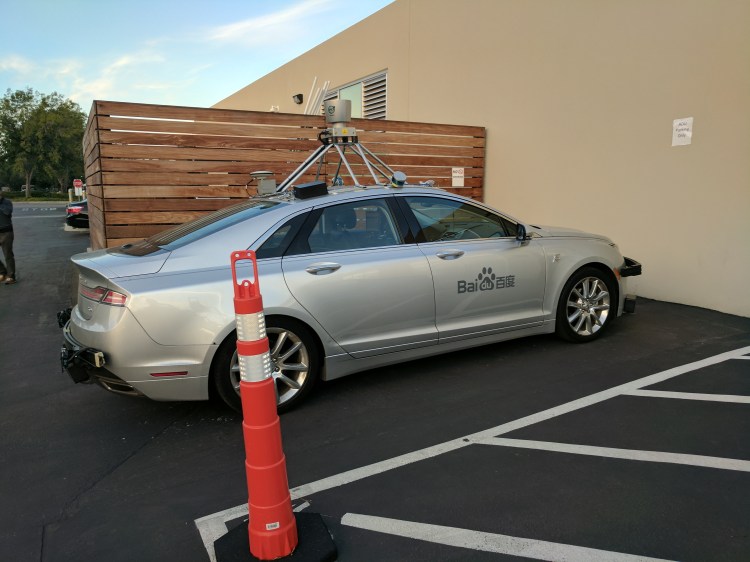As expected, Baidu today announced partners for its Project Apollo autonomous driving platform. The most important names listed were the vehicle manufacturers: Daimler, Ford, and 13 Chinese car makers (BAIC BJEV, BAIC Group, Changan, Chery, CHJ Automotive, Dongfeng Motor, FAW Group, Faw Jiefang, Foton, Great Wall Motors, JAC Motors, King Long, and NIO). Qi Lu, Baidu’s group president and COO, made the announcement in Beijing at the company’s AI developer conference Baidu Create.
Baidu first unveiled its Silicon Valley arm dedicated to self-driving cars in April 2016. A year later, the company snatched up a U.S. computer vision firm and launched Project Apollo, promising to start testing self-driving cars on urban roads by 2018, followed by highways and open city roads by 2020. Today, the company’s timeline shifted to “fully autonomous driving on urban roads and highways by the end of 2020,” underlining the complexity of the task at hand.
Baidu today shared that “more than 50 partners” have joined the Apollo autonomous driving project — we counted a total of 53 on the project’s website. A company spokesperson explained that while a few existing partners were already working with Baidu on a strategic level, they are now specifically joining the Apollo program.
In addition to the vehicle manufacturers, Baidu emphasized tier 1 suppliers (Bosch, Continental Automotive, ZF Friedrichshafen AG, and Desay SV Automotive), key components providers (Nvidia, Microsoft Cloud, ZTE, Velodyne, and TomTom) startups (AutonomouStuff and Horizon Robotics), and ridesharing companies (UCAR and Grab Taxi). The alliance also includes five top universities and six local governments, but only the following were listed: Wuhu in Anhui Province, Baoding in Hebei Province, Yizhuang in Beijing, Chongqing Liangjiang New Area, and Shanghai International Automobile City.
June 5th: The AI Audit in NYC
Join us next week in NYC to engage with top executive leaders, delving into strategies for auditing AI models to ensure fairness, optimal performance, and ethical compliance across diverse organizations. Secure your attendance for this exclusive invite-only event.
“Apollo is an important milestone for the automotive industry,” Lu said at the conference. “It is in essence the ‘Android’ of the autonomous driving industry, but more open and more powerful. Apollo is not solely Baidu’s. It belongs to everyone in the ecosystem. And as we and our partners contribute to the platform in our areas of specialty, we all gain more, with the results far greater than just our own.”
Apollo is supposed to support all major features and functions of an autonomous vehicle via cloud services, an open software stack, reference hardware, and vehicle platforms. Open source code portions can be modified, open capability components are accessible through an API that can be replaced with proprietary implementations, and simulation services backed by autonomous driving scene data are also available. The hope is that developers will not have to duplicate code and that the project will be able to iterate faster.
In this vein, U.S.-based autonomous system components supplier AutonomouStuff showed off an example at Baidu Create. Two cars apparently converted into autonomous vehicles “in just three days” using Apollo’s first released 1.0 version completed circuits around a short track near the conference venue.

